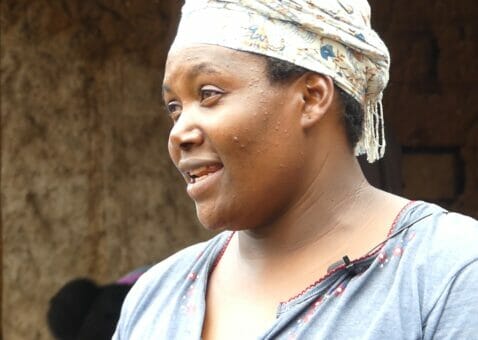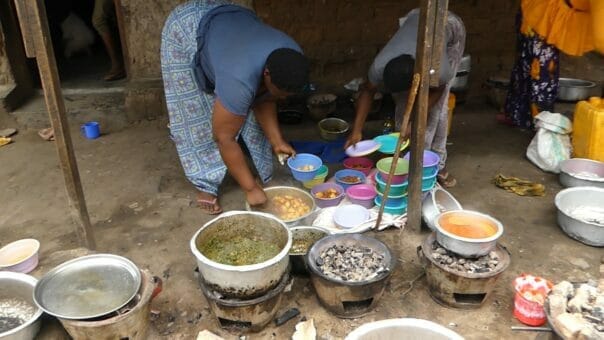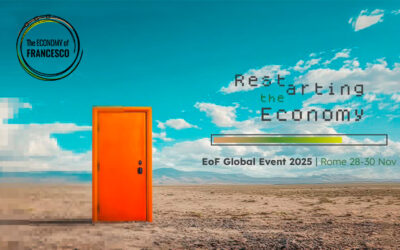Community microcredit and microfinance to support the growth of expanding projects. Rose’s testimony on the importance of the initiative supported by Amu. BIRASHOBOKA means “IT CAN BE DONE” in Kirundi. It is from this conviction that the Community Microcredit and Microfinance project was born in Burundi (Africa). In spite of the great difficulties in which the country still finds itself – it is the second most densely populated country in Africa and one of the five countries with the highest poverty index in the world – Amu, Azione per un Mondo Unito-Onlus, a non-governmental development organisation inspired by the spirituality of the Focolare Movement, has been supporting the capacities of local communities for some time. Since 2007, in fact, in full synergy with the non-profit organisation CASOBU (Cadre Associatif des Solidaires du Burundi), it has been helping local families in a process of training and of improving their living conditions.  With the “It can be done!” project, it aims to create community microcredit groups whose members can support themselves to create jobs and, in a second phase, create a community microfinance group to support the growth of the expanding projects. Rose tells us: “We started our group 13 years ago. With the first loan I got, I remember very well that I didn’t do anything in particular, I bought clothes and goods that I needed, but the rest I wasted. At the beginning, I didn’t know how to start a business and what often happened was that I had difficulty paying back the loan I had received. Then I realised that I couldn’t keep taking out loans without a concrete project and I finally decided to start the restaurant project with the first 300,000 Fbu (150 €). I started buying pots and pans, dishes and gradually opened the restaurant. It was 2009, I didn’t have any workers yet. At that time, my children helped me in the kitchen and I went by bus to take the food to the city where I had my customers.
With the “It can be done!” project, it aims to create community microcredit groups whose members can support themselves to create jobs and, in a second phase, create a community microfinance group to support the growth of the expanding projects. Rose tells us: “We started our group 13 years ago. With the first loan I got, I remember very well that I didn’t do anything in particular, I bought clothes and goods that I needed, but the rest I wasted. At the beginning, I didn’t know how to start a business and what often happened was that I had difficulty paying back the loan I had received. Then I realised that I couldn’t keep taking out loans without a concrete project and I finally decided to start the restaurant project with the first 300,000 Fbu (150 €). I started buying pots and pans, dishes and gradually opened the restaurant. It was 2009, I didn’t have any workers yet. At that time, my children helped me in the kitchen and I went by bus to take the food to the city where I had my customers.  As I became known, the number of customers increased and I was able to hire workers. I am proud that through the salary they receive I also participate in the fulfilment of their dreams.” Rose, who is happy to have embarked on this path, today manages to provide a salary for five other families besides her own. Now she would like to improve and expand her business, for example by renting a bigger premises, where she could cook and reduce the running costs of the restaurant and travel expenses. It is a very brave decision because there is a big investment involved and Rose does not have the collateral or the guarantees needed to access a loan from any bank. And it is for Rose and many other people who, like her, would like to expand their businesses that the AMU and CASOBU project was set up, supporting the start-up of a community microfinance institution to offer savings and credit services to people with big dreams but who still today cannot access banks. To support the project, click here
As I became known, the number of customers increased and I was able to hire workers. I am proud that through the salary they receive I also participate in the fulfilment of their dreams.” Rose, who is happy to have embarked on this path, today manages to provide a salary for five other families besides her own. Now she would like to improve and expand her business, for example by renting a bigger premises, where she could cook and reduce the running costs of the restaurant and travel expenses. It is a very brave decision because there is a big investment involved and Rose does not have the collateral or the guarantees needed to access a loan from any bank. And it is for Rose and many other people who, like her, would like to expand their businesses that the AMU and CASOBU project was set up, supporting the start-up of a community microfinance institution to offer savings and credit services to people with big dreams but who still today cannot access banks. To support the project, click here
Lorenzo Russo




0 Comments